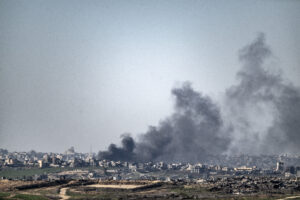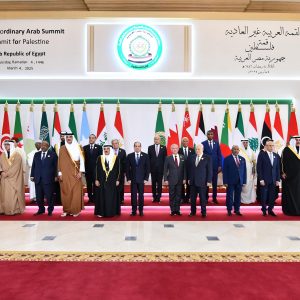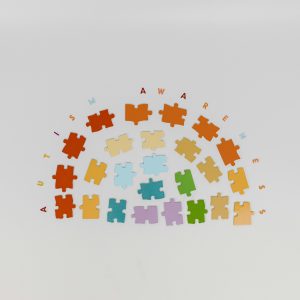Iraq’s Kurdistan caught in Turkish war with rebels
Baghdad, Iraq – (AFP):
Artillery bombardment by Turkish forces killed nine people in Iraq’s autonomous Kurdistan region. Following the bombing in Iraqi territory, Baghdad has called for a withdrawal of Turkish forces from Iraq’s borders, and has warned Ankara that it should handle its “domestic problems” with PKK rebels outside of Iraqi territory.
However, given that Turkiye is a regional economic, military and diplomatic power, a weakened Iraq may not be able to easily extricate itself from the decades-old war between Ankara and Kurdish rebels.
For the past 25 years, the Turkish army has maintained about 40 outposts across Iraq’s Kurdish north, where it has carried out several operations against the Kurdistan Workers’ Party (PKK), which Ankara and its Western allies list as a “terrorist” organisation.
The Kurdish rebels have kept up a violent insurgency demanding Kurdish self-rule in southeastern Turkiye since 1984. They rely on rear bases and training camps hidden in the mountains of Iraqi Kurdistan.
Turkiye also considers the Kurdish People’s Protection Units (YPG) in neighbouring Syria an extension of the PKK and has launched offensives there as well.
“Since 2020, Turkey’s air strikes and military ground operations against the PKK in northern Iraq have intensified,” said Shivan Fazil, of the Stockholm International Peace Research Institute.
Figures are hard to verify but open sources indicate Turkey has “a permanent deployment of 5,000–10,000 soldiers in Iraqi territory,” according to analysis by Salim Cevik published by the German Institute for International and Security Affairs.
“Today, most military conflicts between Turkiye’s army and the PKK take place on Iraqi and Syrian soil,” Cevik wrote, noting that “the use of drones in particular has appeared to be very effective in limiting the PKK’s logistics and manoeuvrability in the region.”
Civilians get caught in the crossfire. Nine people– including women and children — were killed in the recent aerial bombardment.
Iraq blamed Turkiye, which denied responsibility and accused the PKK.
“Shelling and bombing have repeatedly resulted in civilian casualties, destruction of homes and livelihoods, triggering the displacement of villagers,” said Fazil.
Baghdad wants Turkish forces out of its territory, but for this to happen, Fazil said Ankara “might require the Iraqi government to expel the PKK”.
“Does the Iraqi government have the capacity to reassert that kind of territorial sovereignty over its borders and expel armed non-state actors?” asked Fazil.
Iraq has only a caretaker government, as nine months after elections political parties have been unable to agree on forming a new administration. The country is beset by corruption and trying to overcome decades of war and unrest.
The issue also has ramifications far beyond Iraq’s borders. NATO member Turkiye has demanded the extradition of dozens of suspected “terrorists” from Finland and Sweden in order for it to ratify their membership bids in the alliance.
Turkiye is also threatening a new offensive against the YPG in Syria. The YPG forces are the main component of the Syrian Democratic Forces (SDF), which provide crucial assistance to a US-led coalition against ISIS.
In Iraqi Kurdistan, combat has moved away from the border deeper into Iraqi territory and populated areas.
But it is difficult for the region to blame Ankara, given their important economic ties — especially the need for oil from Iraqi Kurdistan to pass through Turkish pipelines on the way to export markets.










